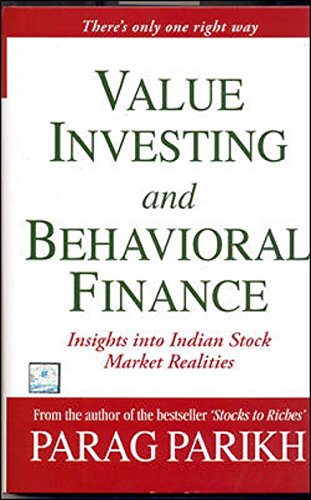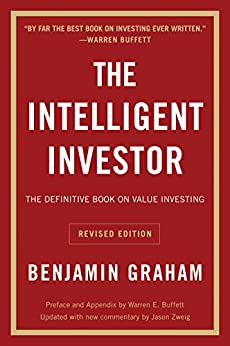
"If You Don't Find A Way To Make Money While You Sleep, You Will Work Until You Die."
- Warren Buffet
One of the ways to make money while sleeping is through investing. There are various strategies as well as investment options available for an individual. Our previous blog discussed the best investment options in India 2023. In this blog, we will discuss value investing and how it works.
Value Investing is a strategy where the investor buys stocks with the potential to increase their price over the years. Investors who are investing in value stocks look for companies that are currently trading below their intrinsic value. The intrinsic value is the value that defines the company's net worth and financial performance.
It is based on the concept that the stock market is very volatile and that a company's stock may overreact to some good or bad news. This will give the value investors a chance to invest in these stocks. Value investors use fundamental analysis and evaluate the company's financials, growth and risks.
The title of Father of Value Investing is given to Benjamin Graham. He was an economist, professor, and investor. He was born in 1894 in London and then moved to the United States Of America. His first publication was Security Analysis which he wrote with David Dodd and was published in 1934. Later in 1949, the very much acclaimed book The Intelligent Investor was published. Warren Buffet is one of his most famous students at Columbia Business School. Graham's contributions to the field of investing have had a lasting impact and continue to be influential to this day.
Value investors buy stocks whose price is lower than their intrinsic value. If investing is done correctly, investors can capitalize on their profit when the stock price increases.
For value investing to work, the investors should thoroughly research the stock they want to purchase. This research includes the company’s financials, management, risks, advantages, and various other factors through which he can learn that the company is stable and worth investing in it. Once the investor selects the stock, he invests in it for the long term and holds onto it until it reaches its worth.
An investor derives the intrinsic value of the company using various metrics. Before investing in an undervalued stock, the investor studies why it is undervalued and the company’s financials and history. Let us discuss some of these below.
The P/E ratio is known as the price-to-earnings ratio. This ratio signifies the relation between the earnings per share and the company's current share price. When the Earning Per Share (EPS) decreases, the P/E ratio will increase. If the price-to-earnings ratio is high, the stock may be overvalued.
Investors use the price-to-book ratio or the P/B ratio to compare the market value of a share with its book value. This ratio can be calculated by dividing the share's market value by the share's book value. The book value of the company can be defined as the net worth of that company. When the stock price goes up, the price-to-book ratio will also increase; when it goes down, so will the ratio.
EBITDA is the amount the company earns before paying interest, depreciation, tax, etc. When this amount is high, the companies generate more profits and receive a higher net profit after paying all the expenses.
Some of the benefits are described below:
Along with the advantages, there are several drawbacks to it. Some of these are:
Value and growth investing are two strategies through which an investor chooses the stocks he wants to invest. Value investors invest in undervalued stocks, while growth investors invest in stocks with high growth potential for future earnings.
Another difference between the two types of investing is that value investing involves a very low level of risk; on the other hand, growth investing contains a high level of risk.
We can also differentiate between Value and growth investing based on the price at which they are trading. The value stocks will be traded at a discounted price while the price of the growth stocks is high.
Various books help investors learn more about investing, like value investors. Some of the best value investing books are:

This book wrote by Parag Parikh. He was the founder chairman of Parag Parikh Financial Advisory Services Limited (PPFAS).
This book describes a lot of fundament concepts and is the best book for Indian value investors as it is focused on the Indian stock market.

The Intelligent Investor was written by Benjamin Graham in 1949. As we discussed above, he is known as the father of value investing. This book is considered one of the most important books on this topic.
This book describes that the investor should read about the company’s financial reports and then analyse them along with its operations.
If we have to describe value investing in one sentence, it is finding a stock with value, and you will have to pay a lot less. It focuses on investing in an undervalued stock that has the potential to grow in the future. Benjamin Graham is known as the pioneer of value investing, and Warren Buffet is one of his most famous students.
The awareness about investing is growing every day, and there are many ways to invest money, either through mutual funds or through trading in the stock market.
The intrinsic value is the company's value calculated using various factors, whether tangible or not. Intrinsic value is the real value of the company, and it is not necessary that it is the same as the market value of the company.
The main strategies to be successful in it is to do your research and be patient, as it is a long process. The investor should also be clear about his investment objectives and monitor his portfolio to avoid significant losses.
There is no definite answer as to what is better, value or growth investing. Both have advantages and drawbacks and can work well in different market conditions and time horizons.
